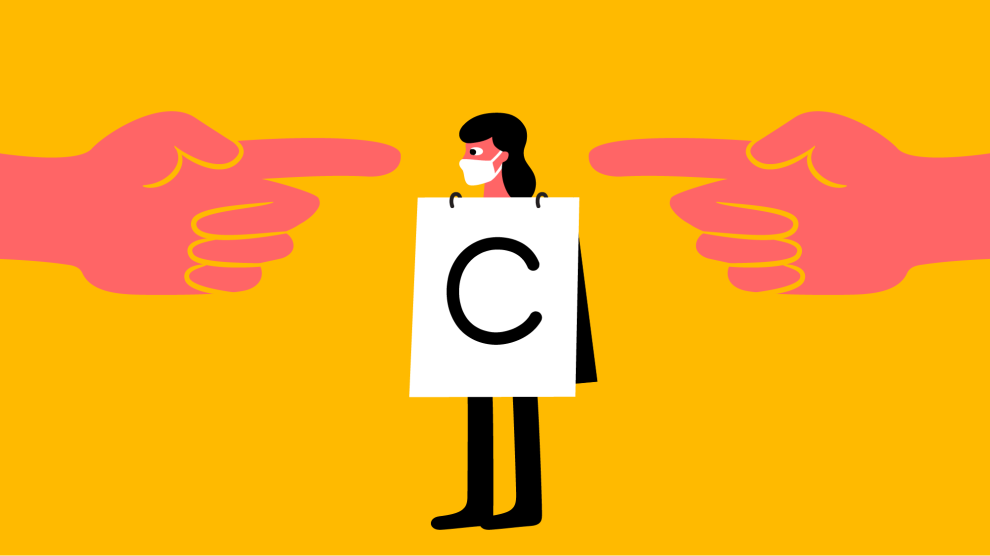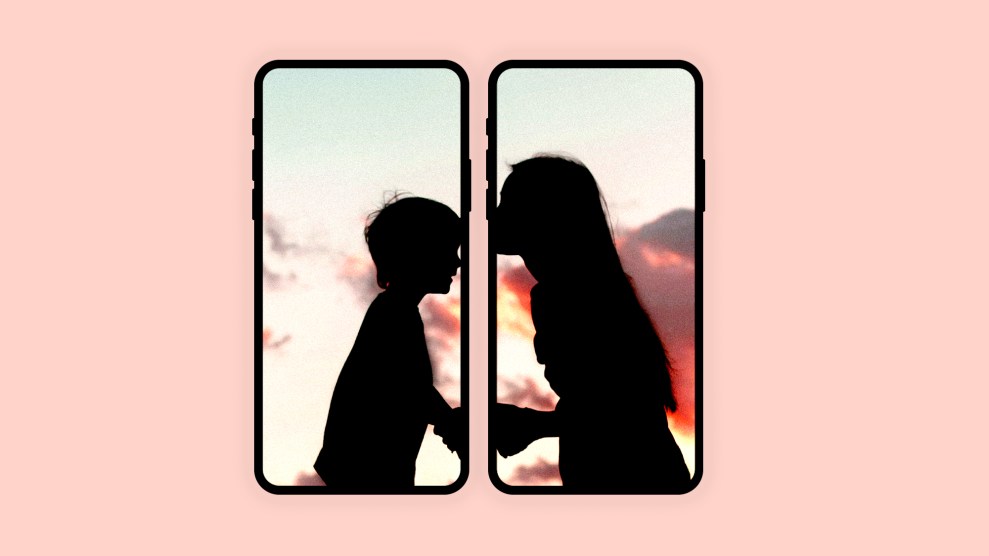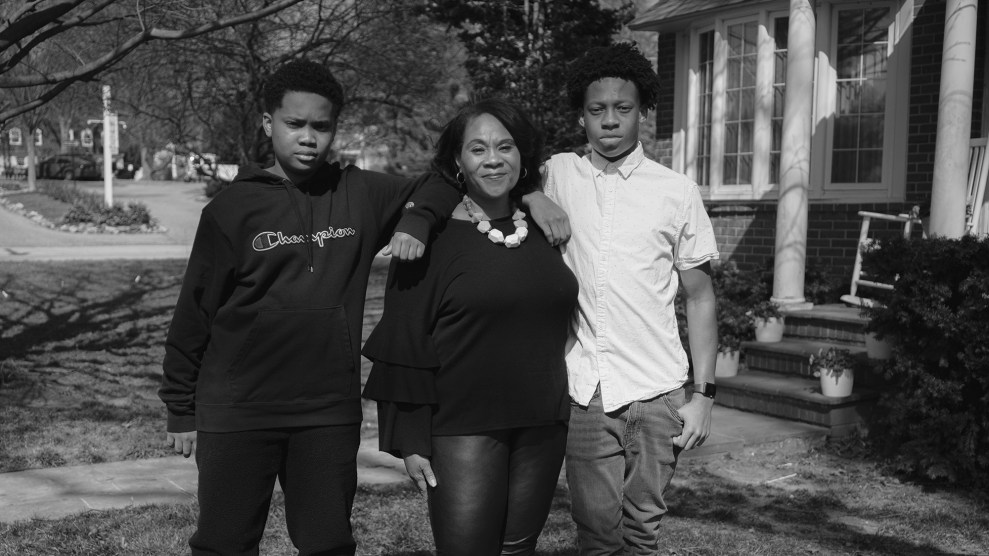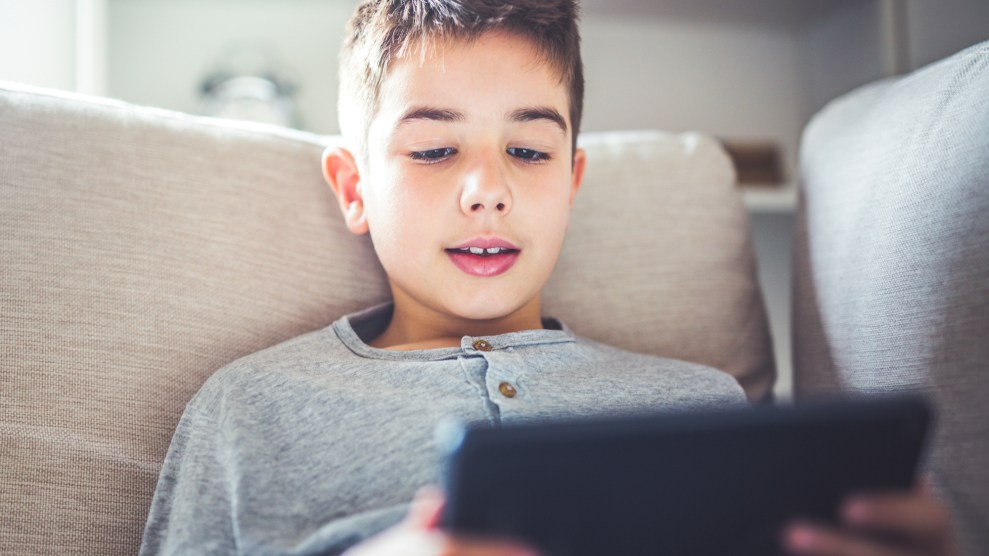Hey, fellow parents of preschoolers: Raise your hand if you know the Paw Patrol theme song by heart. After the past year, who can blame you? In the first few weeks of the pandemic alone, kids’ screen time hit six hours a day—a 500 percent increase—a survey by the child advocacy group Parents Together found. The freakout wasn’t far behind: A raft of news stories warned of an epidemic of screen-related insomnia, mental health problems, and even suicide. In a recent New York Times article, one addiction expert warned of the coming period of “epic withdrawal” when the crisis is over.
I read these articles and thought guiltily of my own kids, ages 5 and 2, whose occasional pre-pandemic forays into the wholesome world of Daniel Tiger had turned into daily sessions zoning out in front of whatever kept them quiet while my husband and I scrambled to finish our work. This was not a good development, according to the experts: For kids under 18 months, the American Academy of Pediatrics (AAP) recommends that screens—with the exception of video chats—are verboten. Kids older than 2 should take in “no more than 1 hour or less per day of high-quality programming.”
You read that right: one hour—or less—per day. Instead, the AAP suggests that caregivers “find other activities to do together that are healthy for the body and mind (e.g., reading, teaching, talking, and playing together).” Right now, that seems like an almost impossibly lofty goal. Yet even in the Before Times, there was something a little out of touch about the notion that all families could fill children’s evenings with enriching games of chess and readings of Little House on the Prairie. The classist overtones of the recommendations rankle Candice Odgers, a University of California, Irvine, psychologist who studies how screen time affects kids. “It’s a very privileged thing to be able to do, to have this tech-free life,” she says.
What bothers Odgers even more is that the screen-time guilt trip is based on shaky science. Most of the studies on the negative mental health effects of screen time rely on caregivers’ iffy recollections of how much time children spent in front of a screen. And studies using brain imaging, experts told me, are also dubious, because of the incredible complexity of the cognitive process. Kate Mills, a developmental neuroscientist at the University of Oregon, calls out studies that claim that exposure to screens increases the creation of dopamine, a chemical that is thought to play an important role in addiction. Mills explained that scans can show the brain releasing dopamine, but they can’t measure how much, which makes the findings practically meaningless.
That the screen-time panic persists even in the face of such questionable evidence isn’t surprising. Parents’ anxiety about screens follows an age-old pattern of overreaction to new technologies. In ancient Greece, University of Cambridge psychologist Amy Orben found, philosophers claimed that the act of writing would make young people more rebellious. In the 18th century, parents worried that their children would become addicted to reading. A 1929 New York Times article warned that constant exposure to fast-paced jazz would cause illness by tiring children out. Some parents in the ’40s fretted that they wouldn’t be able to control their children’s exposure to radio because, as one child-rearing magazine put it, “it comes into our very homes and captures our children before our very eyes.” As Orben says, “Any new technology makes us question what it means to be human and to have a childhood.”
If we can recognize our own hang-ups about screens, says child psychologist Michael Rich, who runs the Digital Wellness Lab at Boston Children’s Hospital, we’ll be in a much better position to help children navigate their digital lives. “I think one thing we have to get away from is the concept that screens are toxic,” he says. “Screens are not inherently toxic. They’re neutral. It’s what we do with them that matters.” Rich bristles at comparisons between screen addiction and drug dependency. “The word ‘addiction’ is inaccurate,” he says, because technology “is not something that changes you biologically.”
There are signs that guidelines are changing to reflect that perspective. Just before the pandemic, the AAP released a new tool to help parents plan their families’ screen time, taking into account not just time limits but also the quality of programming. Jenny Radesky, a University of Michigan developmental psychologist and pediatrician who helped craft the new AAP guidelines, urges parents to consider the producers’ motives as they select content. Will the app maker get more money if your kid watches more? Instead, she recommends content from nonprofits like PBS Kids, Sesame Workshop, and Fred Rogers Productions, which make shows in consultation with developmental psychologists.
One such psychologist is Rosemarie Truglio, the senior vice president of curriculum and content at Sesame Workshop. Part of Truglio’s team’s job is to ensure that the programming on Sesame Workshop shows reflects the latest research on what kids need to succeed, both in school and in life. Over the last few years, the team has been working on a new season of Sesame Street that encourages perseverance. “We’re learning that children are giving up way too quickly,” she said. In one recent segment about measuring, a group of characters is flummoxed by the task of figuring out how tall Big Bird is. After a few failed attempts, they finally nail it using big blocks. Though the don’t-give-up programming was in the works before the pandemic began, Truglio said, it took on new meaning as children had to adjust to their new reality. “Kids thought, ‘I’m not going to school. So what is my routine? How do I change the routine if the routine is not working for me, and not fall apart?’”
At Fred Rogers Productions, too, the team of content creators has found that lessons about flexibility and resilience struck a chord during the pandemic. Ellen Doherty, chief creative officer for the feelings-forward Mister Rogers spinoff show Daniel Tiger’s Neighborhood, recalled a jingle in an earlier season that went, “We can do things a different way—and that’s okay.” That message “is something that we’ve talked a lot about during the pandemic,” she said. Coincidentally, before the pandemic, the team had already been working on a new show, Donkey Hodie, whose titular donkey puppet character never quits trying. The show, which launched earlier this year, teaches young viewers that “being brave doesn’t mean that you’re not scared, and persevering doesn’t mean that you’re not frustrated,” says Doherty. “But you power through, you steady on, despite that.”
While younger kids can get a lot out of television programs attuned to their developmental stages, the media landscape for older children can be more confusing to navigate. For tweens and beyond, Rich says, parents should consider that video games and social media may actually provide the very experience we fear they’re taking away. The irony is that for many kids whose schools were closed, the only social space they had were games like Fortnite and Minecraft, which let them talk and chat while they play with friends. “Kids are finding their own society, they’re meeting their needs in their own ways, and, yes, there’s the possibility for it going very Lord of the Flies,” he says. “But, you know, for the most part, the kids are okay.”












